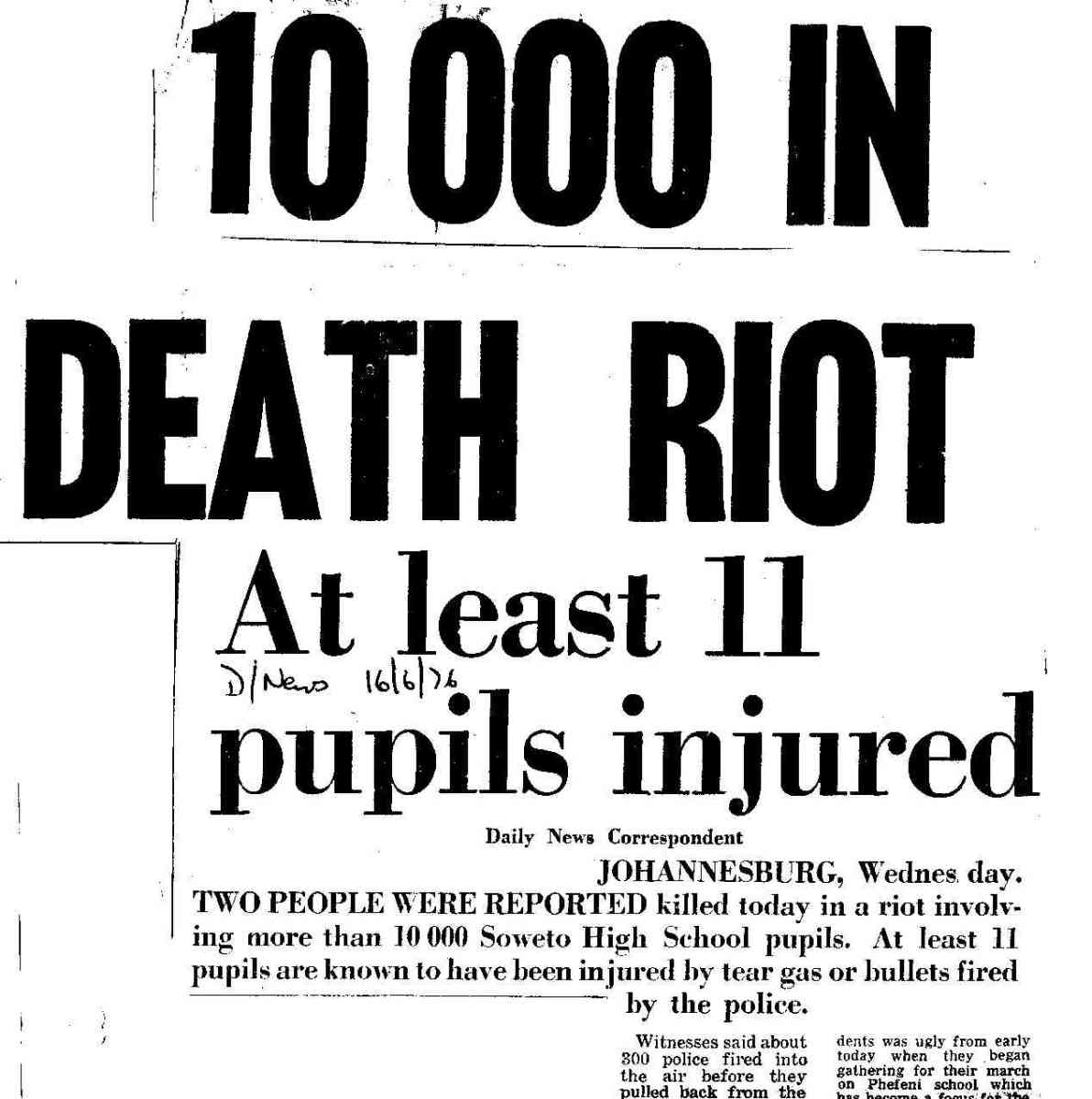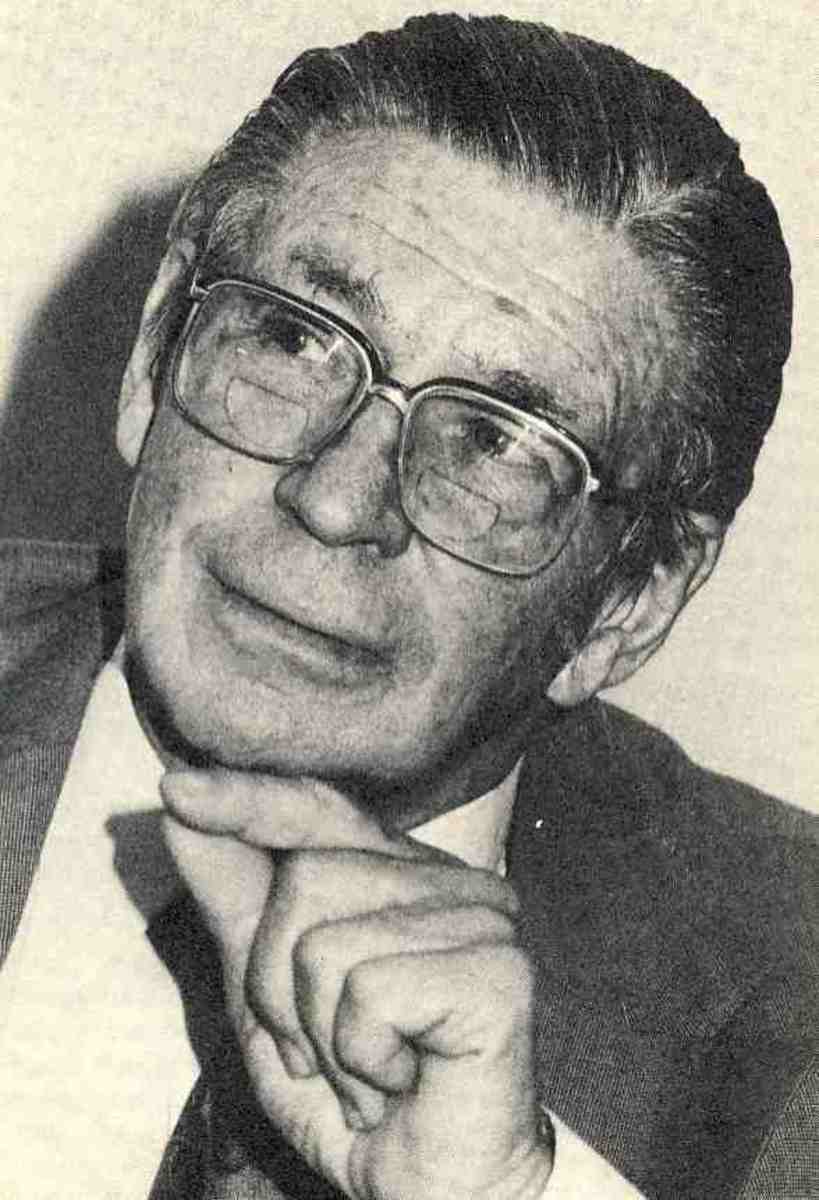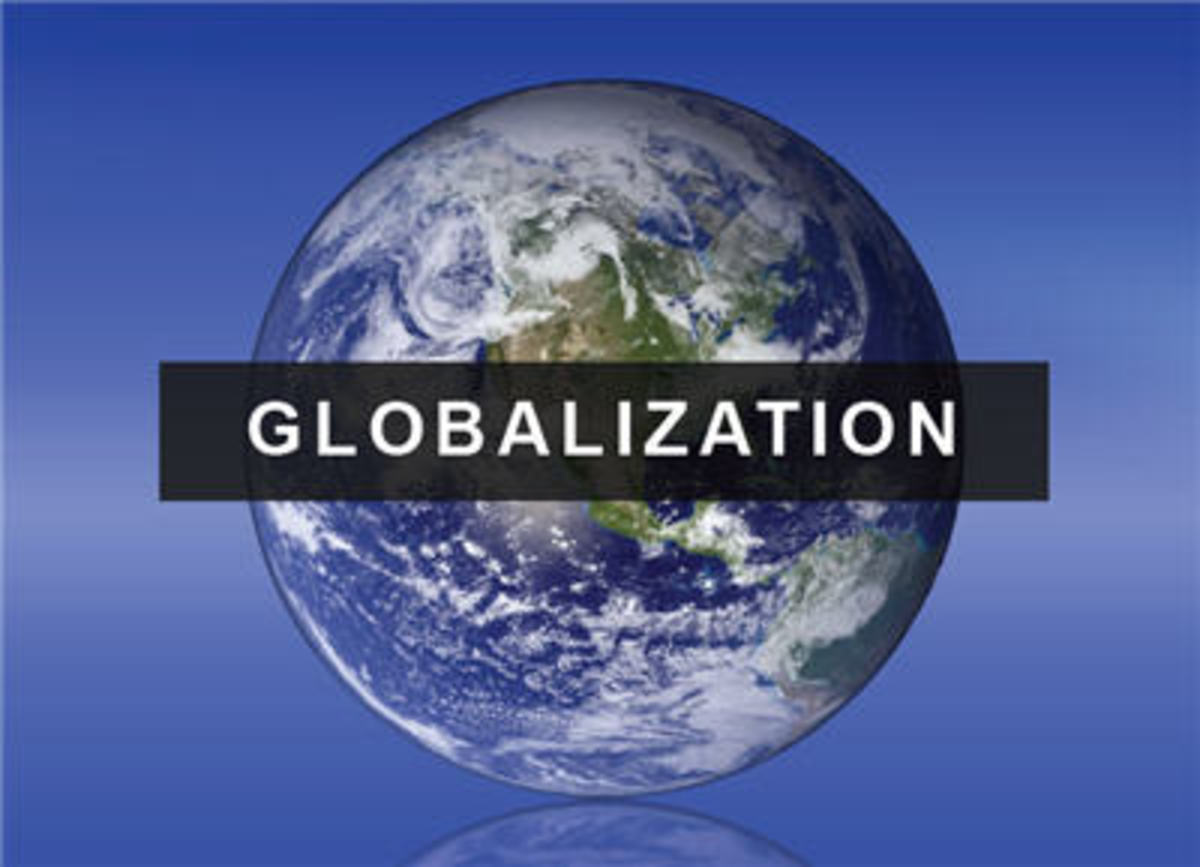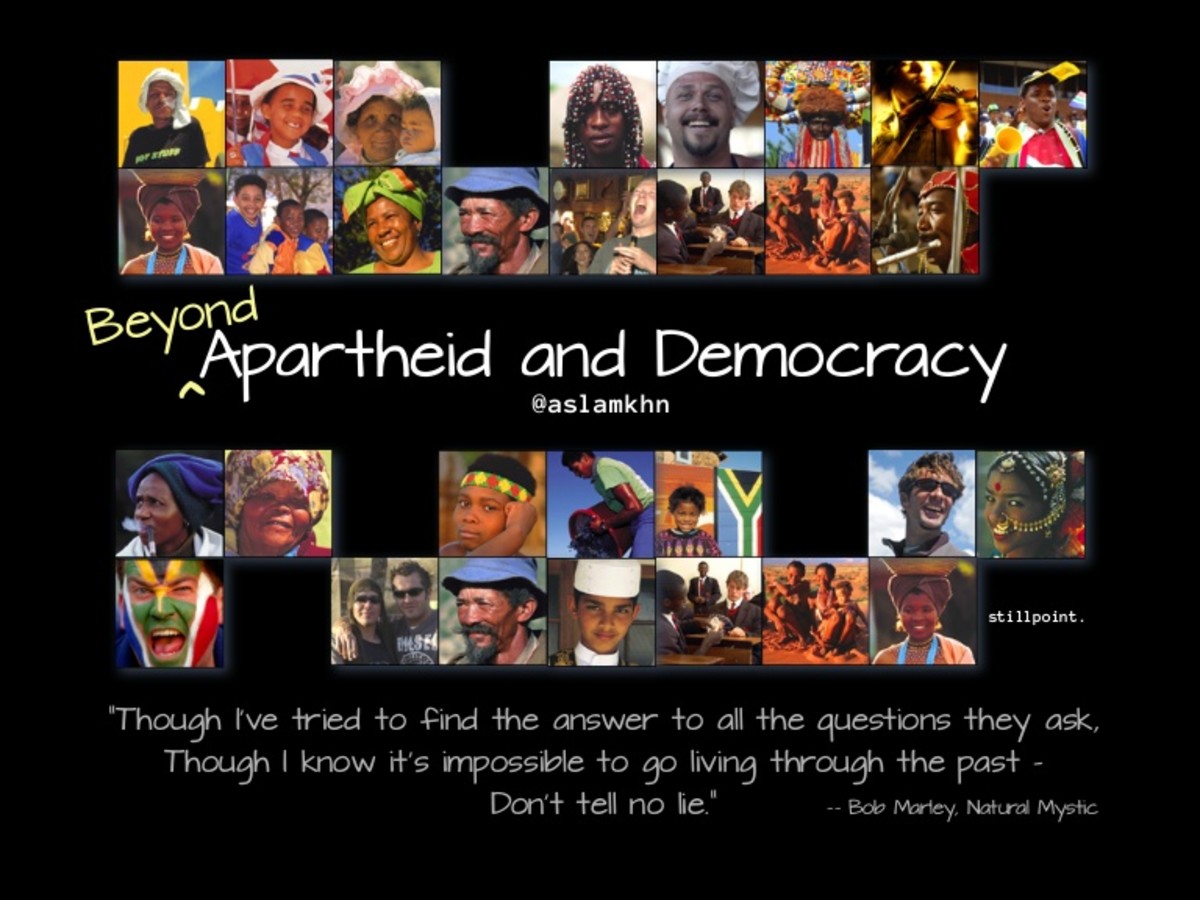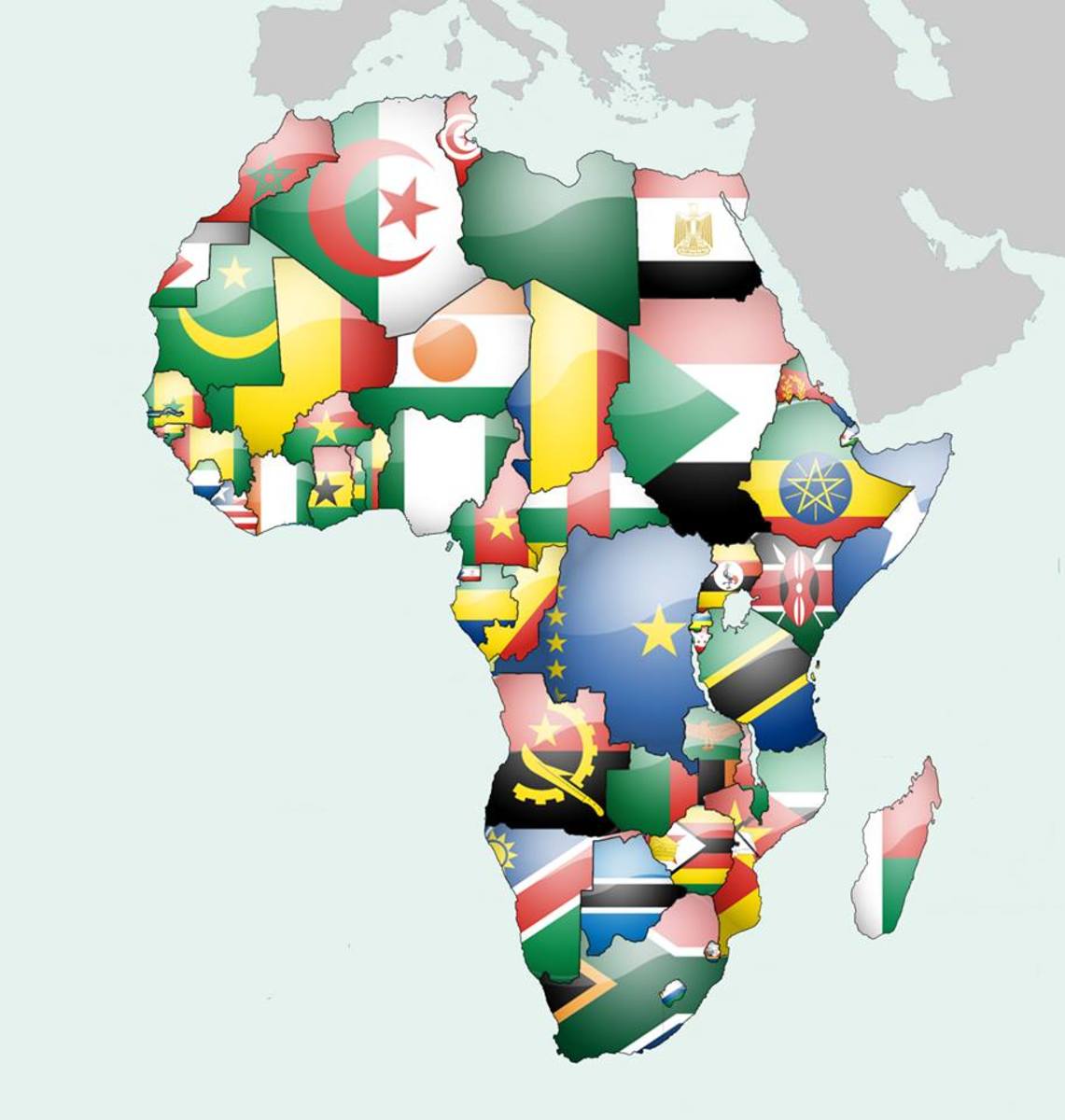Poverty and Stratification in a Contemporary South Africa: A Sociological Point of View
Poverty and Stratification
Types of Poverty
When people are incapable of meeting with the standard living requirements of the country they fall under the scope of Relative Poverty. When, however, expectations exceed income one might experience Subjective Poverty, and when the basic necessities such as food, housing, and healthcare become unaffordable, one succumbs to Absolute Poverty.
Stratification
...involves all manner of inequality amongst the class, gender, ethnicity, age and power within the political arena. According to renowned sociologist Max Weber, another dimension of stratification is that of political power and its ability to enforce political views onto others. Conversely, renowned sociologist Karl Marx explained his view on stratification and class differentiation, arguing that social relations are determined by those who control the principal economic productions. Political power and social relations are two of the many concerns that plague South Africa.
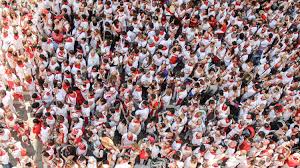
Background
The South African democratic elections of 1994 brought an end to the Apartheid regime and in its aftermath, the country saw a greatly divided population across all its races. While many plans for reformation were put into place at the time, the old patterns of inequality and poverty prevailed in this contemporary yet developing county, now, with a junk status resulting in the majority of its population to be considered by world standards, as Absolutely poor.
The Story Continues
Colonialism governs global poverty in developing countries where the poor are the most destitute.
While multiple reports highlight the confusion around Black Economic Empowerment (BEE) implementation policies and its effectiveness to bring about social change, it seems that inequality prevailed in a new form of a capitalist. The inequality was further exacerbated through the efforts of the National Democratic Revolution, or NDR, with its macroeconomic policy and race relations, and the Economic Freedom Fighters (EFF) leader and former president of the African National Congress Youth League; Julius Malema as its foremost champion. Former President Jacob Zuma continued to breed further corruption through his non-application of acceptable democratic principles.
Global Stratification
Taking a wider view for a moment to consider these concerns as not all unique to South Africa. Globally, human behaviour is greatly governed by inequality where some benefit, while others do not. Division in global wealth only became a phenomenon though after the Industrial Revolution and agricultural productivity that resulted in uneven distribution of rising living standards. Researchers found that the three primary forces that facilitate dominance in the global marketplace, are the legacy of colonialism, the dawn of multinational corporations, and modernisation.
Primary Forces
This global division is due to worldwide inequality across all societies, with poverty well acknowledged in the developing world where billions of people come by on less than two US Dollars per day. Colonialism governs global poverty in developing countries where the poor are the most destitute. Multinational corporations are not improving lives through globalisations of those in the developing world who cannot compete with corporate magnates or the advances made through modernisation; and modern societies are predominantly urbanised, industrialised and literate whereas developing countries are not.
Distribution of Wealth
It is these industrialised countries that enjoy the most wealth, and in nearly a third of nations around the world, including South Africa, the wealthiest enjoy the lion’s share of all generated income. Populations in the industrialised nations tend to be smaller, with more income and greater spend on health than that found in the developing world. Therefore, similar aspects of stratification that affected poverty are considered in post-apartheid South Africa.
POVERTY IN POST-APARTHEID SOUTH AFRICA
South Africa has the opportunity to learn now, so to curb poverty and inequality, and break away from a historical context that continues to promote a capitalist nation that seems to be repeating itself.
There is a strong correlation between developing countries, such as South Africa, and their dependency on the global economy. After 1994 The Reconstruction and Development Programme (RDP) were created to inform government policy. Many of its inequalities were being addressed post-apartheid with multiple policy changes affected after 1999, yet inequality prevailed despite mandates to redistribute wealth among the provinces. Resource distribution was addressed post-1994 and in particular, healthcare inequality. Black Economic Empowerment or BEE was introduced as the fundamental approach to address inequality within the South African economy.
The BEE Effect
In a report for the Contemporary Review Company on BEE and South Africa, W. Emkes in 2012 described BEE as a patriotic bourgeoisie, where the NDR threatens the stability of democracy. This stance was echoed by economist Moeletsi Mbeki, brother to former president Thabo Mbeki, who argued that a small minority class of unproductive black entrepreneurs whom he labelled as “crony capitalists”, feed off the economic growth while affording the control of large organisations to white businessmen.
Emkes boldly argued how Julius Malema had been at the centre of debates around the political direction, which bolstered his popularity in speaking for the multitude and majority of supporters from informal settlements; who believed, and continues to do so, that he will eradicate poverty. Mr. Malema seems to ruthlessly encourage the belief of a self-serving government that cares little for the people; who seek only power, status and wealth. Furthermore, the failures of President Jacob Zuma, said Emkes, afforded Julius Malema a great political opportunity, and also posed a great economic threat for South Africa.
Health and Spatial Resources
Focusing the lens on healthcare, evidence highlights the superior working conditions for South African healthcare workers within the private sector, which further aggravates staff availability for HIV/AIDS programs as well as that of the current COVID-19 pandemic. Towards the end of late president Nelson Mandela’s rule, the economy went into decline and availability of resources, for redistribution became scarce at the same time when demands from HIV/AIDS patients increased. Even spatial resources in South Africa, doing its bit to fuel the fires of inequality, seem to be governed by widely publicised rebellion and silent struggles, protests, and continuous racism.
Economic Development
There is without a doubt a desperate need for economic development strategies to be focused around realistic budgetary restrictions, and for reliable estimations of unemployment and poverty statistical data, while also encouraging contributions arising from labour force participation. South Africa has the opportunity to learn now, from other countries and from their social consequences of economic policy building; so, to curb poverty and inequality, and break away from a historical context that continues to promote a capitalist nation that seems to be repeating itself. Perhaps a world pandemic is just what a developing country like South Africa needs, to upset the scales of history.
References
Abhijit, V., Banerjee, V., & Duflo, E. (2007). Living on $1 a day. The journal of economic perspectives, 31(3).
Cousins, B. (2007). More than socially embedded: The distinctive character of 'communal tenure' regimes in South Africa and its implications for land policy. Journal of Angrarian change, 7(3), 281-315.
Emkes, W. (2012). Black economic empowerment and South Africa. Contemporary Review Company Ltd.
Finchilescu, G. (2003). Living with prejudice - Xenophobia and race. Report on a study, Cape Town.
Keizan, S., & Duncan, N. (2010, December). From their perspective: Explanations of patterns of racialised social interactions among a group of post-apartheid adolescents. South African journal of psychology, 40, 465-486.
Lu, Y., & Treiman, D. J. (2011). Migration, remittances and educational stratification among blacks in Apartheid and post-Apartheid. Social forces, 89(14), 1119-1144.
Özler, B. (2007). Not separate, not equal: Poverty and inequality in post-Apartheid South Africa. Economic development & cultural change, 487-529.
SACAP. (2013). Introduction to contemporary society: Student guide. Cape Town: The South African college of applied psychology.
Schaefer, R. T. (2013). Sociology: A brief instruction (10 ed.). New York: McGraw-Hill.
Schuermans, N., & Visser, G. (2005). On poor whites in post-Apartheid cities: The case of Bloemfontein. Urban Forum, 16(4), 259-294.
Serumaga-Zake, P., Kotze, D., & Madsen, R. (2005). A descriptive study of the dynamics of relative poverty in the Western Cape province of South Africa. Development Southern Africa, 22(1), 143-160. doi:10.1080 03768350500044610
Shisana, O., Rice, K., Zungu, N., & Zuma, K. (2010). Gender and poverty in South Africa in the era of HIV/AIDS: A quantitive study. 19(1), 39-46. doi:10.1089/jwh.2008.1200
Stuckler, D., Basu, S., & McKee, M. (2011). Healthcare capacity and allocations among South Africa's provinces: Infrastructure - Inequality traps after the end of Apartheid. American journal of public health, 101(1), 165-172.
Ulriksen, M. S. (2012). How social security policies and economic transformation affect poverty and inequality: Lessons for South Africa. Development Southern Africa, 3-18. doi:10.1080/0376835X.2012.645637
THE CONFLICT PERSPECTIVE
Poverty in South Africa could be understood through the sociological Conflict perspective where key elements are focused around inequality, capitalism and stratification, and where the society is characterised by its historic tension between racial groups and oppression. Authority figures hold on to BEE and the nation continues to be shaped through those with political status and power. But change is constantly taking place; even positive change should be the aim of a truly democratic nation.
Leadership


